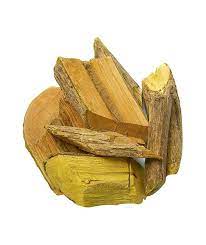TREE TURMERIC
It’s not the same plant as regular turmeric (Curcuma longa), though both have been used for their medicinal properties. Tree turmeric is known for containing berberine, a yellow alkaloid, and other chemicals, and is used in traditional medicine for conditions like diabetes, high cholesterol, and skin issues.
Key Characteristics and Uses:
-
Tree turmeric contains berberine, which is believed to have various beneficial effects, including potential anti-inflammatory and antioxidant properties.
-
It’s used in Ayurveda and traditional Chinese medicine for a range of conditions, including heart failure, liver disease, malarial fever, and skin problems.
-
Tree turmeric is sometimes applied directly to the skin to treat burns and wounds.
-
It’s important to differentiate tree turmeric from the more commonly known turmeric (Curcuma longa).
-
Tree turmeric is generally considered safe, but some people may experience side effects like digestive upset or allergic reactions.
-
It’s generally advised to avoid tree turmeric during pregnancy and breastfeeding due to potential risks associated with berberine.Tree turmeric, or Berberis aristata, has been used traditionally for various health issues, including jaundice, hepatitis, fever, and inflammation. It’s believed to have antioxidant, anti-inflammatory, antimicrobial, and hepatoprotective properties. Additionally, some studies suggest it might help with blood sugar and cholesterol levels, though more research is needed to confirm these benefits.Here’s a more detailed look at the potential health benefits:
-
Tree turmeric is known for its anti-inflammatory properties, which may help reduce inflammation in the body.
-
Its antioxidant properties can help protect cells from damage caused by free radicals.
-
It may have antimicrobial properties that can help fight bacteria and other pathogens.
-
Some studies suggest it can protect the liver from damage.
-
Some evidence suggests it might help lower blood sugar and cholesterol levels.
-
It has been traditionally used to treat various ailments like jaundice, hepatitis, fever, bleeding, inflammation, diarrhea, malaria, skin and eye infections, rheumatism, and urinary disorders.
Important Note: While tree turmeric has been used traditionally and some research suggests potential health benefits, more scientific studies are needed to fully understand its effects and confirm these claims. If you’re considering using tree turmeric for any health condition, it’s essential to consult with a healthcare professional. -






